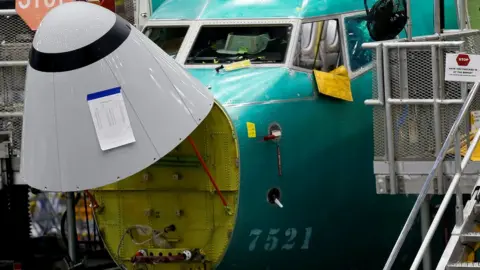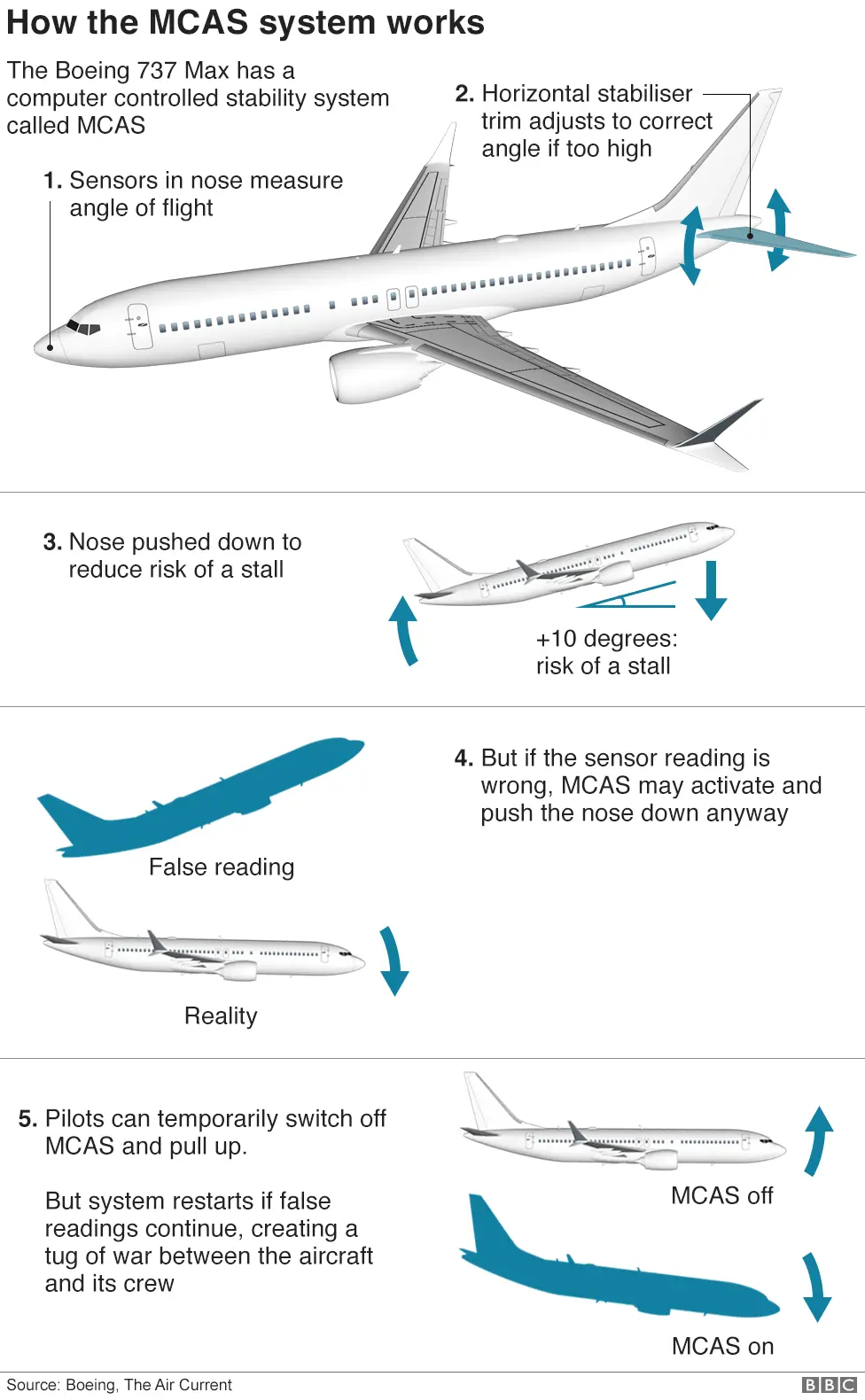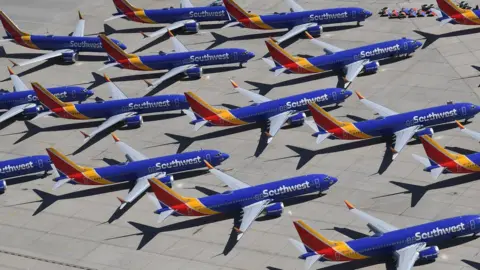Boeing 737 Max: FAA says no fixed timetable for grounding to be lifted
 Rex Features
Rex FeaturesThe US aviation regulator has indicated that the Boeing 737 Max might return to service later than airlines had hoped.
US Federal Aviation Administration (FAA) acting director general Dan Elwell said if it took a year for the grounding order to be lifted "so be it".
International aviation regulators are meeting on Thursday to discuss the 737 Max's return to service.
The plane was grounded in March after two crashes in five months in which 346 people died.
Once the order is lifted, it will take between 100-150 hours of preparation before the grounded 737 Max planes will be ready for flying, say officials for American Airlines, United Airlines and Southwest Airlines.


Ryanair chief executive Michael O'Leary said earlier this week that he expected the 737 Max to receive approval by late June or early July.
Mr Elwell was asked by reporters whether it was realistic that the 737 MAX could be flying again by the summer.
"If you said October I wouldn't even say that, only because we haven't finished determining exactly what the training requirements will be.
"If it takes a year to find everything we need to give us the confidence to lift the [grounding] order so be it."
He said discussions with Boeing over approving the safety update were "a constant give and take until it is exactly right. It's taking as long as it takes to be right. I'm not tied to a timetable".
One decision the FAA has yet to make is whether or not to require pilots to undergo simulator training for the safety update.
Safety analysis
Aviation regulators from 33 countries, including the UK, Europe and China, are meeting in Texas.
The meeting, led by the FAA, could set out a timetable for when the aircraft can return to service.
The regulator said it would provide its "safety analysis that will form the basis for our return to service decision process".
The FAA also said it "will provide safety experts to answer any questions participants have related to their respective decisions to return the fleet to service".
Boeing has developed a software update for the Manoeuvring Characteristics Augmentation System (Mcas) on the 737 Max - a new feature on the jet designed to improve the handling of the plane and to stop it pitching up at too high an angle.


Mcas has been linked to both the Ethiopian Airlines crash in March, which killed 157 passengers and crew, and the Lion Air disaster in Indonesia at the end of October, in which 189 people perished.
However, Boeing has not formally submitted the software fix to the FAA.
 Getty Images
Getty ImagesThe FAA is expected to conduct a certification flight in the coming weeks.
The executive chairman of the International Pilot Training Association, Captain Tilmann Gabriel, told the BBC: "The FAA current acting director general has made it very clear that he is not committing to October, which was the real date [for the reintroduction], but there is so much to do.
"The credibility of the FAA and Boeing is at stake here. I'm convinced that there is a fix found, but this has to be now properly introduced.
It is also not clear when regulators outside the US in other countries will allow the plane back in the air.
China was the first country to ban the 737 Max from its skies following the Ethiopian Airlines crash. Other nations including the UK, Australia, New Zealand and the European Union soon followed suit.
The US was one of the last countries to ground the 737 Max in March following the Ethiopian Airlines crash. Southwest Airlines and American Airlines are the biggest operators of the 737 Max globally.


The FAA has said that the issue of whether to make pilot training on 737 Max simulators a requirement before the plane can return to service is "still under review".
The New York Times recently reported that the simulators - which Boeing provides the software for - were not able to accurately replicate conditions similar to those which played a part in both the Ethiopians Airline and Lion Air disasters.
Boeing said it "has made corrections to the 737 Max simulator software and has provided additional information to device operators to ensure that the simulator experience is representative across different flight conditions".
It added that it was working with both the manufacturers of the simulators and regulators "on these changes and improvements and to ensure that customer training is not disrupted".
Mr Gabriel told the BBC: "The big thing is that the simulators had not anticipated the Mcas. Pilots didn't know about it and if the authorities decide that all pilots have to be trained in a simulator that [could] cause a very big delay."
Meanwhile, the International Air Transport Association (IATA) will also hold a meeting on Thursday with airlines that have grounded the 737 Max.
Alexandre de Juniac, the IATA's director general and chief executive, said the gathering was designed to assess what the airlines "expect from the manufacturer and from the regulatory authorities".
